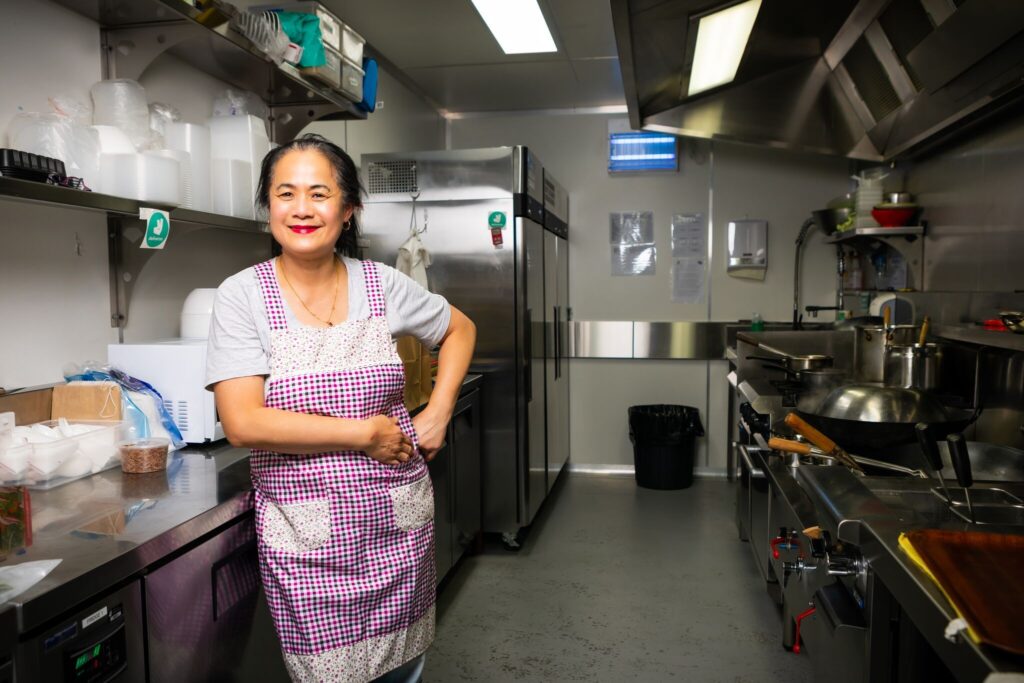
Third-party delivery platform, Deliveroo has announced a new initiative aimed at curbing a growing dissatisfaction among restaurant operators. The Deliveroo Restaurant Revival team will reportedly assist restaurants that have closed or are in financial difficulty to adapt to the rapidly changing consumer landscape.
The unveiling of the new team follows a series of high-profile reports revealing the difficulties facing fast-food and restaurant outlet owners.
Since entering the market, delivery platforms have been well-received by consumers and patrons, however operators have regularly questioned the high price-point and fees involved.
Compounding the costs are rising rents, long leases and a swell in local competition, leading to a series of store closures and dwindling profitability.
While some operators have made the decision to exit the platforms, it does come at a cost. Data from market research firm Statista revealed that the online food delivery segment is expected to grow at an annual growth rate of nine per cent, resulting in a market volume of AUD$3,518m by 2023.
With more than seven million users across the country, restaurant owners can no longer afford to ignore the Deliveroo, UberEats and Menulog market, particularly as US giant DoorDash rolls out its inaugural Australian platform.
Deliveroo Restaurant Revival
The Deliveroo Restaurant Revival program sees the third-party aggregator introduce a series of new initiatives to help restaurants struggling to adapt to the evolving marketplace.
Box Hill favourite Madam Kwong was forced to close its doors in 2018, citing dwindling profits. However, with the help of the Deliveroo Restaurant Revival team, lead by former restaurateur Tim Talbot, the Malaysian chain is now operating out of the Deliveroo’s commercial kitchen site, Editions.
Based in inner-city Collingwood, the Editions site houses 35 partner brands, offering a low-cost, easily operated format to meet growing delivery demand.
“There’s a lot of talk about challenges in the restaurant sector and they are very real, but also very complex. To run a successful restaurant today, not only do you need to have a good product, but you have to think about your distribution channels, pricing, marketing, regulatory compliance, operational costs, whilst also tracking your competition,” Talbot said.
“We’re launching the Restaurant Revival Team because we want to see restaurants succeed and grow. Restaurants are at the heart of our business, we will always do whatever we can to help them thrive in the ever-changing consumer landscape”.
While these so-called ‘dark kitchens’ are by no means a new notion, understanding their place in the evolving culinary landscape can be a tricky premise, particularly for established operators such as Madam Kwong.
Within the walls of Editions, however, restaurant operators are granted more than just a space to prepare. According to the Deliveroo Restaurant Revival team, partners are provided extensive coaching from product sourcing, to managing profitability, branding and staff training.
Impact on franchising
While the Editions initiative has reportedly turned a sales growth of on average 150 per cent for operators, it remains to be seen how the aggregator will target the franchise sector.
Many of the operational coaching and mentoring on offer shares a similarity to that seen within franchise models, whereby the franchisor provides training, operational guides, marketing and intellectual property use.
Regardless, the profitability battle continues to wage on, and with so much noise on the domestic market, it can difficult for operators to understand their place.
“The aggregators take away your ability to communicate with customers, things like offering promotions, asking how their meal was, even the simple things like opening the door for someone or thanking them for their business,” Damian Hopper, director of Melbourne-based fast-casual franchise Bubba Pizza director told Inside Franchise Business.
Hopper said that for franchise chains to succeed in 2019, it was up to the franchisor to back the network with a premium, well-placed offering.
The Pizza chain has responded by investing heavily in brand development and social media, allowing its franchisees to not only rise above the noise, but differentiate through loyalty.
“You have to let your product do the talking, we are improving the quality of our products, how they are made and the way we package them,” Hopper said.
“With aggregators, customers only see your brand name on their app, not even a logo, so it’s important that in that moment they see your name that it means something to them. Something for them to think “I know what these guys are all about, lets order from them”, so it’s very important to invest resources into your own brand and give it a clear message and a voice.”
In Australia, Deliveroo has a network of over 8000 riders working alongside 11,000 restaurants. The new Deliveroo Restaurant Revival team is now operational, providing information to those restaurant operators struggling to adapt to significant market change.

